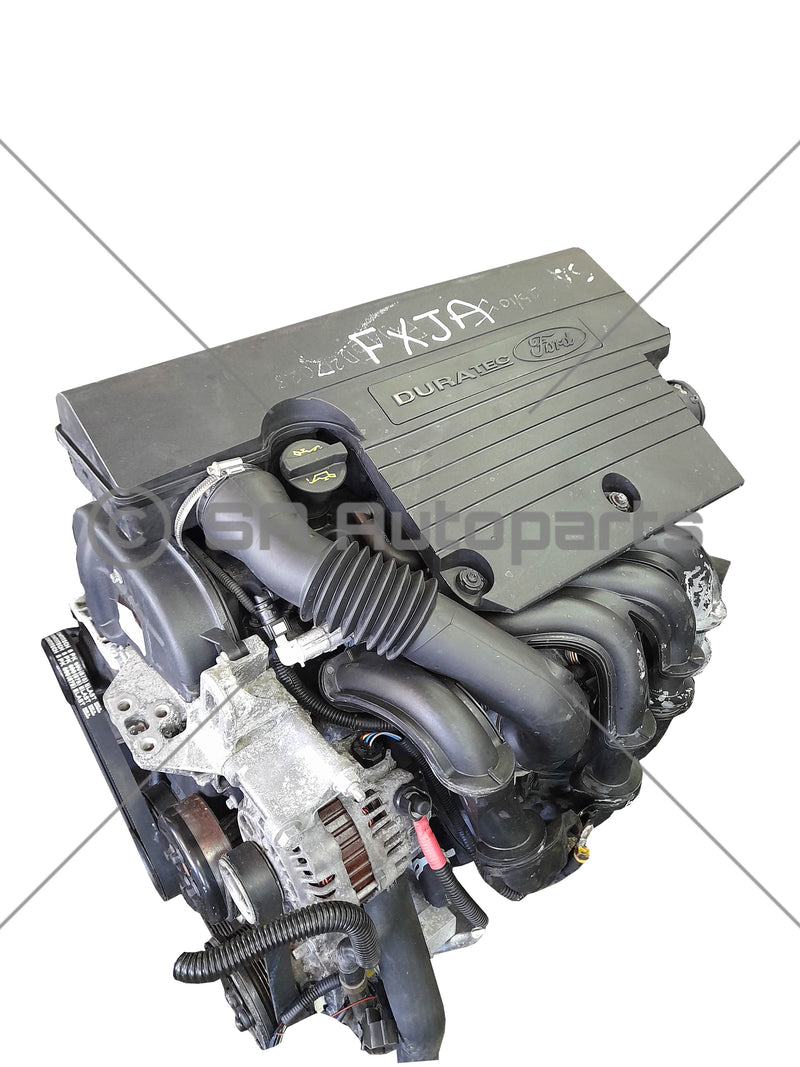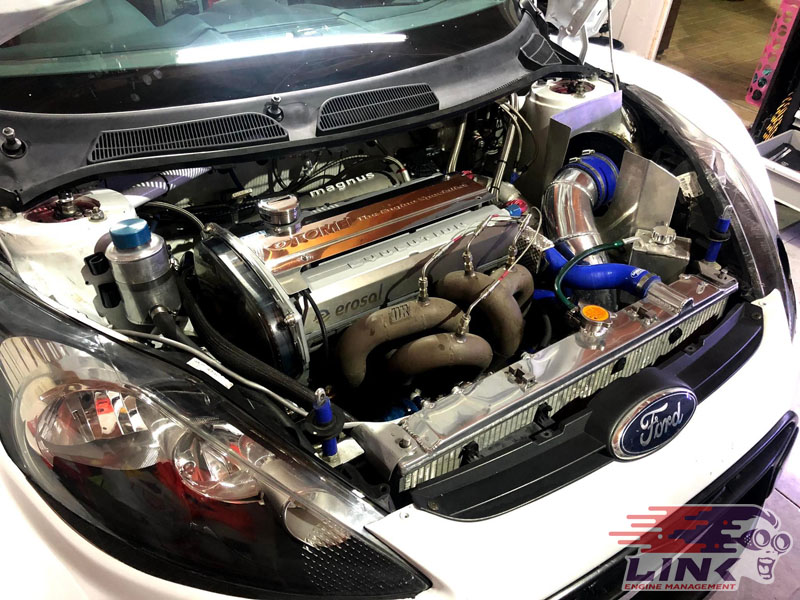The Future of Engines: Technologies Driving Sustainable Power Solutions
As the vehicle market browses the essential change towards sustainability, the future of engines is progressively defined by groundbreaking advancements. Electric engine developments, alongside promising growths in hydrogen fuel cells and biofuels, are reshaping the landscape of power remedies. The emergence of crossbreed systems additionally complicates this advancement, presenting both difficulties and chances to reduce emissions effectively. Paired with the integration of fabricated intelligence in engine style, these technical strides raise crucial questions about their long-term feasibility and influence on traditional standards. What might this suggest for the sector and consumers alike?
Electric Engine Developments
The evolution of electrical engine developments represents a pivotal change in the aerospace and auto markets, driven by the urgent demand for sustainable options to nonrenewable fuel sources. This shift is identified by significant developments in battery modern technology, power electronics, and electrical motor layout, which collectively enhance the effectiveness and efficiency of electric engines.
Recent developments have actually brought about the production of lighter, much more energy-dense batteries, such as lithium-silicon and solid-state batteries, which guarantee longer varieties and much shorter charging times. In addition, enhancements in electric motor efficiency, such as the use of permanent magnets and advanced cooling down systems, enable electric engines to operate effectively under differing conditions. These improvements not just improve vehicle efficiency yet additionally add to a reduction in general energy usage.
Furthermore, the integration of advanced software formulas has actually enhanced power management in electrical automobiles, enabling for regenerative stopping and anticipating charging approaches. As manufacturers progressively welcome electric propulsion, the vehicle and aerospace fields are seeing a standard shift towards greener modern technologies. This advancement not only meets regulative demands however likewise lines up with customer preferences for eco-friendly transportation remedies, solidifying electrical engines as a cornerstone of future lasting mobility.
Advancements in Biofuels
As the aerospace and automotive sectors significantly focus on sustainable energy sources, improvements in biofuels emerge as a corresponding service to electrical engines. Biofuels, originated from natural materials such as crops, waste, and algae, offer a cutting-edge avenue for reducing greenhouse gas discharges and dependence on nonrenewable fuel sources.
Current study has actually concentrated on boosting the efficiency and sustainability of biofuel production. Second-generation biofuels make use of non-food feedstocks, decreasing competitors with food supply and reducing environmental effect. Additionally, developments in synthetic biology have allowed the engineering of microorganisms to generate biofuels much more properly, resulting in higher yields and reduced manufacturing expenses.
Furthermore, the advancement of drop-in biofuels enables smooth integration into existing facilities, making it possible for a smoother change for industries traditionally depending on nonrenewable fuel sources. ford fiesta engine. These gas can be utilized in present engines without modifications, facilitating their fostering across various sectors
Investments in biofuel technology, together with encouraging plans, are crucial to drive innovation and scalability. As the worldwide neighborhood looks for to combat climate change, biofuels use a pragmatic, immediate service that lines up with the overarching objective of sustainability in transportation and air travel.
Hydrogen Gas Cell Innovation
A growing variety of firms and researchers are checking out hydrogen gas cell innovation as a viable choice to traditional power resources in transportation and power systems. This innovation converts chemical energy from hydrogen into electrical power with an electrochemical response, with water as the only by-product, making it an eco-friendly choice.
The core of hydrogen gas cells is the gas cell stack, where hydrogen molecules are split right into electrons and protons. The flow of electrons produces power, while protons relocate through a membrane visit the website to incorporate with oxygen from the air, developing water. This process causes high efficiency and reduced emissions, placing hydrogen gas cells as a crucial gamer in the change to lasting power.
Significant advancements have been made in boosting the resilience and performance of fuel cells, together with reducing prices via cutting-edge production strategies. The development of hydrogen manufacturing techniques, such as electrolysis powered by renewable power resources, improves the sustainability of the general system. As infrastructure for hydrogen refueling expands and production approaches become much more effective, hydrogen fuel cell technology holds wonderful assurance for decarbonizing different industries, consisting of heavy-duty transportation and stationary power generation.
Hybrid Solutions and Their Influence
Hybrid systems stand for a considerable development in lasting engine innovation, combining typical internal combustion engines with electric propulsion to enhance energy effectiveness and decrease discharges (ford fiesta engine). This dual technique allows automobiles more info here to utilize both source of power, allowing higher adaptability in power intake and decreasing dependence on nonrenewable fuel sources

In addition to environmental benefits, crossbreed systems provide customers a viable change in the direction of totally electrical lorries. They minimize array anxiousness by combining the comfort of gas with the advantages of electric propulsion, making them an attractive choice for a wider target market.
The Duty of AI in Engine Style
Leveraging innovative algorithms and device discovering techniques, the automobile industry is significantly integrating synthetic knowledge (AI) into engine style procedures. AI improves the efficiency and efficiency of layout by examining vast datasets to recognize optimal arrangements and efficiency criteria. This capacity permits engineers to simulate various operating problems and anticipate engine habits under multiple circumstances, dramatically lowering the moment and expense associated with standard prototyping techniques.
Furthermore, AI assists in the advancement of advanced products and burning processes customized for sustainability. By optimizing fuel performance and minimizing discharges, AI-driven styles straighten with worldwide campaigns targeted at minimizing the carbon impact of automobile engines. Machine discovering algorithms can also Web Site forecast maintenance needs, causing improved integrity and long life of engine components.
In Addition, AI contributes in the combination of electrification modern technologies, such as hybrid systems, where it can maximize battery administration and power recuperation processes. As the market relocates towards more lasting power services, the duty of AI in engine style becomes increasingly vital, driving innovation and enhancing the efficiency of future engines. Ultimately, the collaboration in between AI and engine style declares a brand-new age of smarter, cleaner, and a lot more reliable vehicle innovations.

Conclusion
To conclude, the future of engines is being shaped by a merging of ingenious innovations that prioritize sustainability. Electric engine advancements, biofuel growths, hydrogen fuel cells, and crossbreed systems collectively add to a considerable decrease in emissions and ecological effect. In addition, the combination of man-made knowledge in engine layout improves performance and performance. These transformative options emphasize a dedication to producing a cleaner, a lot more lasting automotive landscape, ultimately benefiting both culture and the setting.
Electric engine improvements, along with encouraging growths in hydrogen gas cells and biofuels, are reshaping the landscape of power solutions. Furthermore, improvements in electric motor efficiency, such as the usage of irreversible magnets and progressed cooling systems, make it possible for electrical engines to run effectively under differing problems. By optimizing fuel efficiency and minimizing discharges, AI-driven styles straighten with worldwide efforts aimed at decreasing the carbon footprint of auto engines. As the sector moves towards even more lasting power solutions, the duty of AI in engine design comes to be progressively vital, driving innovation and enhancing the performance of future engines. Electric engine improvements, biofuel growths, hydrogen fuel cells, and hybrid systems collectively contribute to a substantial decrease in discharges and ecological influence.
Comments on “Why Regular Maintenance of Your Ford Fiesta Engine Is Essential”